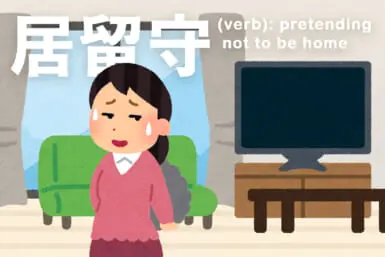First, all the toilet paper was gone. Then the flour. Then all feeling of zen because yoga mats were no longer available to buy online.
The 2020 new coronavirus pandemic wreaked havoc on the world and on daily lives as people across the globe spent months in social isolation at home. With self-quarantine came new shopping habits – as well as panic-buying and hoarding.
Not the usual hoarding – like old magazines or exotic pets. Everyday items we once took for granted became highly sought after to the point fights broke out amidst the queues of people waiting outside a Yokohama supermarket.
As the supply chain returns to normal following the end of Tokyo’s state of emergency, we take a look back at what some of the items that sold out during the pandemic in Japan, and how we can prepare for the next one…
Daily Necessities
The first thing to go was, of course, daily necessities. As early as February toilet paper, hand soap and hand sanitizer as well as disposable masks had people waiting in line early in the morning waiting for stores to open. For weeks, none of the items could be found at drugstores, convenience stores and even online. What consumers were left with were price-gouged items.
Uniqlo's new Airism face mask is designed dry quickly and stay cool – just in time for Tokyo summer. https://t.co/CWlP0Sd32U
— Tokyo Weekender (@Tokyo_Weekender) June 17, 2020
We saw a rise in DIY masks and since, you might notice there have been a lot more handmade masks being using among commuters. As daily necessities are now being restocked everywhere, reusable and washable masks are being sold next to your classic disposable ones. People are pretty excited for Uniqlo’s new Airism masks, which start selling on June 19 (better get there early before they sell out.
Japan didn’t see a break in the food supply chain until PM Shinzo Abe announced the state of emergency in early April. In the span of a few hours, residents all over Japan saw a 14-day isolation period as a real possibility and this translated to waves of panic buying. Bread, along with baking goods, meats and rice disappeared from grocery and convenience stores. Though things returned to normal quickly, we’re still seeing some places that are sold out of pasta, canned tomato sauce and other imported items.
These items will help you transition from the office chair to the home sofa. https://t.co/fyiCWg8MT2.
— Tokyo Weekender (@Tokyo_Weekender) April 14, 2020
Electronics
Shortly after the state of emergency was announced in early April, several Japanese companies turned to temporary telework measures. This saw a range of electronic items sell out within days, including web cameras, laptops and other office necessities like desks and chairs. Delayed delivery times became expected as most apartments aren’t equipped for remote working.
Drugstores also experienced a shortage of thermometers. With fever being the most common and consistent symptom among Covid-19, everybody wanted to make sure that they could keep track of their body temperature. Schools and kindergartens required parents to keep a close eye on their kids’ temperature. The only variety left on the shelves were those specifically made to track women’s menstrual cycle. Because they tend to be more precise, they were significantly more expensive, starting at about ¥3,000 apiece.
Finally, Japan saw a particularly long (and painful) shortage of Nintendo’s Switch console along with the fitness game Ring Fit Adventure. Again, with more time to be spent at home, residents were looking for some entertainment.
The coronavirus pandemic caused many fitness centers to close doors. It also created the opportunity for gym owners to think proactively about fitness and its role in disease prevention. https://t.co/BqGm18y671
— Tokyo Weekender (@Tokyo_Weekender) June 16, 2020
Fitness Equipment
Tokyo’s gyms and fitness centers closed during the state of emergency forcing people looking to maintain their shape, or lose those new isolation pounds, to resort to at-home activities like yoga. Other people had to completely reprogram their exercise routine to accommodate their new fitness space – also known as their living room.
Online retailing company Rakuten reported a 230% increase in sales for exercise equipment such as yoga mats, dumbells and running shoes. It was even hard to get your hands on bicycles for a few weeks.
Rakuten also reported that keeping kids distracted became a priority for work-from-home parents, and sales for mini trampolines, baby playgrounds, cotton candy makers and UFO-shaped mini drones saw a dramatic increase.
Whatever it takes to maintain zen at home.









